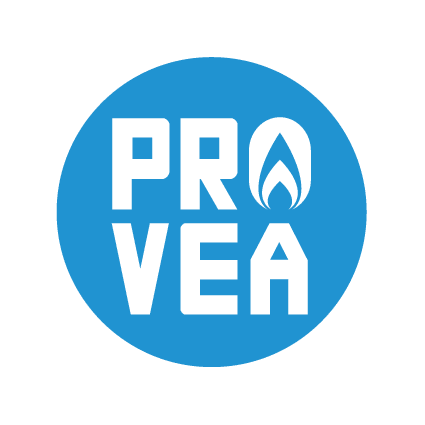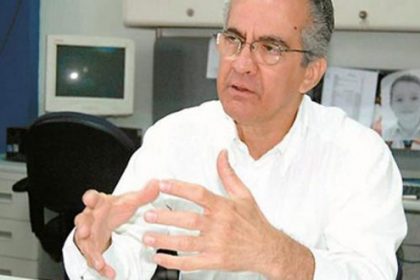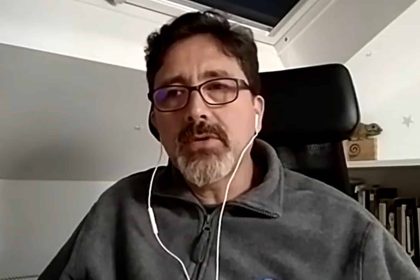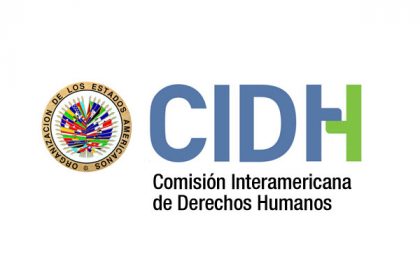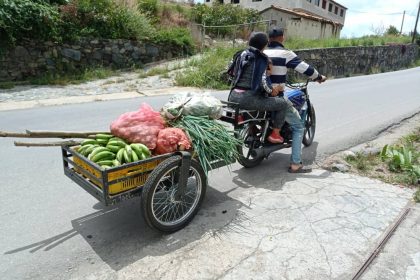Los Relatores Especiales para los Derechos a la Asociación y Reunión Pacíficas; Libertad de Expresión; Derecho a la Salud; Derechos de los Pueblos Indígenas; Situación de los Defensores de los Derechos Humanos; Grupo de Trabajo sobre Detenciones Arbitrarias; Derecho a la Vida Privada; Tortura y otros tratos crueles, inhumanos y degradantes; Ejecuciones Extrajudiciales y Sumarias, de la Organización de Naciones Unidas, publicaron este jueves una declaración conjunta en la que solicitan al gobierno de facto de Venezuela, investigar las muertes ocurridas en el contexto de manifestaciones.
«Hacemos un llamado a las autoridades venezolanas para que lleven a cabo una investigación inmediata, imparcial y efectiva sobre todas las muertes ocurridas durante las protestas en curso, y liberen a todos aquellos que han sido detenidos por ejercer legítimamente sus derechos humanos a la libertad de expresión y reunión pacífica», dijeron los expertos.
La declaración expresa la preocupación de los relatores debido al incremento de la respuesta represiva de las autoridades y la fuerza pública venezolana, en medio del actual ciclo de protestas que demandan servicios públicos como salud; electricidad; agua; alimentación y transporte y exigen cambios democráticos en el país. «Estamos profundamente preocupados por el rápido deterioro de la situación económica, social y política en Venezuela y pedimos a las autoridades que tomen medidas urgentes e inmediatas para hacer frente a esta compleja crisis, con pleno respeto de sus obligaciones internacionales de derechos humanos […] Hemos recibido informes constantes de un desprecio sistemático y generalizado de los derechos humanos mostrado por las autoridades venezolanas durante su represión contra manifestantes, periodistas y defensores de los derechos humanos. Pedimos al Gobierno que respete y proteja el derecho a la libertad de reunión pacífica y que aborde las causas subyacentes de las manifestaciones».
El documento difundido en el portal web de la Oficina del Alto Comisionado de las Naciones Unidas destaca el arresto de más de 1.000 personas durante manifestaciones realizadas entre el 21 y 29 de enero del presente año; el asesinato de al menos 26 personas en el contexto de manifestaciones entre el 22 y 25 de enero; los obstáculos para el ejercicio del periodismo y la libre expresión e información, y el ataque a la población indígena Pemón por parte de funcionarios de la Guardia Nacional Bolivariana el pasado 23 de febrero. «Estamos particularmente preocupados por los informes que indican que 26 personas murieron a manos de las fuerzas de seguridad y grupos paramilitares gubernamentales cuando participaban en manifestaciones entre el 22 y el 25 de enero […]Solo el 23 de enero, 17 periodistas denunciaron ataques, detenciones y confiscación de equipos. Ese mismo día, se interrumpió el acceso a los sitios de redes sociales y, según informes, las autoridades civiles y militares allanaron tres medios de comunicación, lo que provocó la destrucción y el decomiso de los equipos que impedían la transmisión de las emisoras […]También se informa que las comunidades indígenas han sufrido a manos de las autoridades, con una serie de lesiones y muertes presuntamente resultantes del uso de municiones reales por parte de la Guardia Nacional Bolivariana en Kumarakapay y Santa Elena de Uairén», señala la declaración.
La declaración conjunta de los Relatores de Naciones Unidas se produjo un día después de la presentación del Informe Oral sobre la situación de los Derechos Humanos en Venezuela, de la Alta Comisionada de las Naciones Unidas para los Derechos Humanos, Michelle Bachelet, ante el Consejo de Derechos Humanos de la Organización de Naciones Unidas (ONU), en la ciudad de Ginebra, Suiza. En su informe, la alta funcionaria expresó su preocupación por la “magnitud y la gravedad de la repercusión de la crisis actual sobre los derechos humanos”, que en su opinión constituye un factor de desestabilización en la región.
A continuación reproducimos la declaración conjunta que puede ser consultada en la página web del ACNUDH:
Venezuela: UN experts condemn widespread rights violations reported during protests
GENEVA (21 March 2019) – Human rights violations which are reported to have taken place during protests in Venezuela have been condemned by UN human rights experts* as systematic and pervasive.
“We are deeply concerned about the rapidly deteriorating economic, social and political situation in Venezuela and call upon the authorities to take urgent and immediate measures to address this complex crisis, with full respect for their international human rights obligations,” the experts said.
“Freedom of expression and assembly is essential so that the legitimate concerns of citizens can be heard and their needs, including their human rights, addressed.
“We have received consistent reports of a systematic and pervasive disregard for human rights displayed by the Venezuelan authorities during their crackdown on protesters, journalists and human rights defenders. We call upon the Government to respect and protect the right to freedom of peaceful assembly and to address the underlying causes for the demonstrations.”
The demonstrators have been protesting over lack of access to basic services, such as healthcare, medication, food and water, and calling for democratic change.
The ongoing crackdown on them has reportedly resulted in a dramatic rise in arbitrary detentions, killings, raids and torture.
Between 21 and 29 January, reports say more than 1,000 people including minors were arbitrarily detained in connection with the protests. Most of those arrested were reportedly kept incommunicado for days, without access to family or legal representation.
“We are particularly concerned about reports indicating that 26 people were killed by security forces and pro-government paramilitary groups while taking part in demonstrations between 22 and 25 January,” the experts said.
The security forces have allegedly used live ammunition, rubber bullets and buckshot on crowds. The country’s hospitals reportedly lack sufficient medical resources to treat the injured.
Journalists and media outlets are also said to have been specifically targeted. Reports say internet services have frequently been partially or totally disrupted. On 23 January alone, 17 journalists reported attacks, detentions and confiscation of equipment. That same day, access to social media sites was disrupted and three media outlets were reportedly raided by civil and military authorities, resulting in destruction and confiscation of equipment preventing broadcasters from transmitting.
On 29 and 30 January, 11 journalists were allegedly arbitrarily detained. Four of them were later deported and, between the beginning of February and the first week of March, at least 20 more were said to have been arbitrarily arrested.
Indigenous communities are also reported to have suffered at the hands of authorities, with a number of injuries and deaths allegedly resulting from the use of live ammunition by the Bolivarian National Guard in Kumarakapay and Santa Elena de Uairén.
“We call upon the Venezuelan authorities to conduct an immediate, impartial and effective investigation into all deaths which have occurred during the ongoing protests, and to release all of those who have been detained for legitimately exercising their human rights to freedom of expression and peaceful assembly,” the experts said.
“We urge the Government to take immediate measures to remedy the situation, including by allowing critical and dissenting voices to be heard in Venezuela, without fear of retaliation, threats, violence or other harassment.”
ENDS
(*)The UN experts: Mr. David Kaye, Special Rapporteur on the promotion and protection of the right to freedom of opinion and expression; Ms. Agnes Callamard, Special Rapporteur on extrajudicial, summary or arbitrary executions; Mr. Clément Nyaletsossi Voule, Special Rapporteur on the rights to peaceful assembly and of association; Mr. Michel Forst, Special Rapporteur on the situation of human rights defenders; Mr. Nils Melzer, Special Rapporteur on torture and other cruel, inhuman or degrading treatment or punishment; Mr. Seong-Phil Hong, Chair-Rapporteur, Working Group on Arbitrary Detention; Mr. Dainius Pῡras, Special Rapporteur on the right to health; Ms. Victoria Tauli Corpuz, Special Rapporteur on the rights of indigenous peoples; Mr.Joseph Cannataci, Special Rapporteur on the right to privacy.
The Working Groups and Special Rapporteurs are part of what is known as the Special Procedures of the Human Rights Council. Special Procedures, the largest body of independent experts in the UN Human Rights system, is the general name of the Council’s independent fact-finding and monitoring mechanisms that address either specific country situations or thematic issues in all parts of the world. Special Procedures experts work on a voluntary basis; they are not UN staff and do not receive a salary for their work. They are independent from any government or organization and serve in their individual capacity.
For more information and media requests please contact: Mr. Jack Pope (+41 22 917 9278 / [email protected]) or write to [email protected].
For media inquiries related to other UN independent experts:
Mr. Jeremy Laurence, UN Human Rights – Media Unit (+ 41 22 917 9383 / [email protected])
Follow news related to the UN’s independent human rights experts on Twitter @UN_SPExperts.
Concerned about the world we live in? Then STAND UP for someone’s rights today. #Standup4humanrights and visit the web page at http://www.standup4humanrights.org
